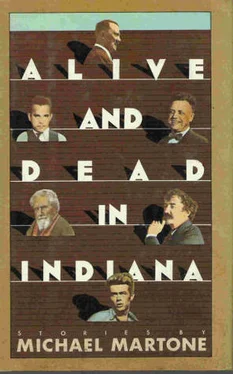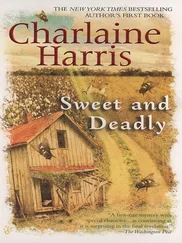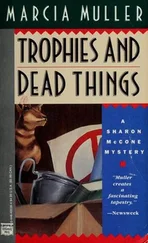Michael Martone - Alive and Dead in Indiana
Здесь есть возможность читать онлайн «Michael Martone - Alive and Dead in Indiana» весь текст электронной книги совершенно бесплатно (целиком полную версию без сокращений). В некоторых случаях можно слушать аудио, скачать через торрент в формате fb2 и присутствует краткое содержание. Год выпуска: 1984, ISBN: 1984, Издательство: Dzanc Books, Жанр: Современная проза, на английском языке. Описание произведения, (предисловие) а так же отзывы посетителей доступны на портале библиотеки ЛибКат.
- Название:Alive and Dead in Indiana
- Автор:
- Издательство:Dzanc Books
- Жанр:
- Год:1984
- ISBN:9781936873500
- Рейтинг книги:3 / 5. Голосов: 1
-
Избранное:Добавить в избранное
- Отзывы:
-
Ваша оценка:
- 60
- 1
- 2
- 3
- 4
- 5
Alive and Dead in Indiana: краткое содержание, описание и аннотация
Предлагаем к чтению аннотацию, описание, краткое содержание или предисловие (зависит от того, что написал сам автор книги «Alive and Dead in Indiana»). Если вы не нашли необходимую информацию о книге — напишите в комментариях, мы постараемся отыскать её.
Alive and Dead in Indiana — читать онлайн бесплатно полную книгу (весь текст) целиком
Ниже представлен текст книги, разбитый по страницам. Система сохранения места последней прочитанной страницы, позволяет с удобством читать онлайн бесплатно книгу «Alive and Dead in Indiana», без необходимости каждый раз заново искать на чём Вы остановились. Поставьте закладку, и сможете в любой момент перейти на страницу, на которой закончили чтение.
Интервал:
Закладка:
She says that she reads about me all the time in the papers.
You know half of it ain’t true .
It wasn’t no good with nothing to plan.
She says she was at a dance when I broke out of Crown Point. She says she made sure a cop saw her that night. Says she makes sure a cop sees her every night. She tells me she’s thinking about going into vaudeville. People had been around to ask.
I could hear her sister in the next room taking a bath.
It didn’t matter now that we had shields. They kept shooting, and the people with their hands up got hit first. The bags were too light. I was working the inside with two guys I didn’t know. They were the only ones who would work with us now. Homer was outside with a rifle and Lester by the Hudson.
We walked out and everyone started to get hit. Homer in the head from a shotgun that took the pants leg off a local. I pulled him into the car.
He said we should wear something different when we did South Bend.
New faces. Sure .
So we had on overalls over the vests. Always a clown. We wore straws too. Changed his luck. Pieces of straw mixed in with his hair in the hole in his head. Lester wanted to count the money again.
Blackie walks with the priest. The warden is there, the governor, two guards. Blackie says so long. Someone is playing a harmonica .
Mrs. Mint saying again over ice cream that Romania isn’t a country, just what was left of a place after the war. Patty holds the cherry up for me.
I don’t know anything about the world.
I’m seen everywhere.
Cops in England are searching the boats going to France. Every body that turns up is what’s left of me.
I could call the Leach home, hear him stutter while he tries to keep me on the line. But it could be anybody with a gun. I’m worth too much now that the governors got together.
I’ll check in with Henry Ford. Send a messenger to Detroit with a note. All the models I left on the edge of Chicago. Good little cars.
Mrs. Mint told me she’s already turned the bed down back at Patty’s place. But I want to stay and watch the cartoons.
The lights are going up and everybody’s squinting coming out of the dark. I can see who’s been next to me. And Patty crying. Mrs. Mint looking through her purse for a hanky for her. I can’t keep my eyes open. Pete, Mac. I’ll see their Mouth at Wrigley tomorrow, give him what I can spare from the trip.
Patty touching my hand. Then both of the women are squeezing by, heading for the aisle. The crowd is buzzing and I can smell the smoke from the lobby. It’s cold in here. Just this once I’d like to open my eyes and have it be all different.
VOCATION
This is a city of poets. Every Wednesday, when the sirens go off, a poet will tell you that, after thirty years, Fort Wayne is still seventh on Hitler’s bombing list. And you half expect to hear the planes, a pitch lower than the sirens, their names as recognizable as those of automobiles. Heinkels lumber out of the east, coast up Taylor Street, or follow the Pennsy from one GE plant to another. Stukas dive on the wire-and-die works, starting their run at the International Harvester bell tower, left standing on purpose, and finish by strafing the Tokheim yards. Junkers wheel, and Messerschmitts circle. All the time there would be sirens.
Grandfather keeps his scrapbooks upstairs in the window seat of the empty bedroom. When he dies, they are to be mine, and I am to give them to the Air Force Museum at Wright-Patterson Air Force Base. Grandfather started keeping these scrapbooks when he felt the time was right for war. He felt the war coming. In the years before the war, the scrapbooks that he kept were pieces of the world he found — a field outside of Peking where old people go to die, a man being buried alive, all the All-American football teams of those years, the bar of soap Dillinger used at the Crown Point jail, a man cut into three parts by a train, a Somalian warrior with no clothes on. These things made sense to Grandfather.
A real poet knows how to bomb his own city.
In the window seat where Grandfather keeps his finished scrapbooks, there is also his collection of missals, all the handouts from Wendell Willkie’s campaign, and everything Father Coughlin ever wrote. The scrapbooks have interesting covers. There is one with a mallard duck on the wing worked into the leather. One is made of wood and has an oak leaf carved into it. Most, though, have only company names or Season’s Greetings .
I have never been able to read all the scrapbooks. They are in no order, and nothing in them is. Every page is dated with the newspaper itself. He went straight through the book. One day I can read about the Battle of Britain, the next day VE day, the next the Soviet Pact. I have never gotten to the bottom of the window seat.
Once I found Hitler’s list.
There are cottonwoods along the rivers. In the spring, a poet will look up at the undefended sky and announce, “At any moment we could be destroyed.”
When I was little, I would practice making bomb noises, the whistling sound of a bomb falling. I would take a deep breath, form my lips, begin. I could make it sound as if the bomb were falling away from me, or on me, by modulating the volume, adjusting its fade or rise. I preferred the perspective of the plane, starting with the loud high note. A second or two of silence as the bomb is out of earshot. Then the tiny puff of air reaching me from the ground.
This is why old men smoke at night in the middle of parks. They do it to attract bombers.
Mother remembers certain things about the war. She remembers making dolls out of hollyhocks, taping butcher paper on the windows, and not being able to look at the newspaper until Grandfather had cut out the things he wanted. Once, in the A&P, she lost her underwear while waiting in line to buy milk. There was no rubber to hold up the underwear. She tells me this story every time I think I have troubles. Mother danced in the USO shows for the troops from Baer Field and Casad. Once she shared the stage with Bob Hope.
The whole city watches as the skywriter finishes the word.
SURRENDER.
Before going through the scrapbooks, I would sit on the window seat as if to hold the lid on. I would look out over the front lawn, across Poinsette to Hamilton Park. Through the pine trees and the blooming cherries, I could see the playground and the circling tether ball, the pavilion, the war memorial, the courts. I wasn’t old enough to change the world.
At a high-school bake sale, the frosted gingerbread men remind a teacher of her students drilling on the football field during the war. They wore letter jackets with shiny white sleeves, or bright sweaters with stripes and decorations. They carried brooms at trail arms in the sunset.
How does evil get into the world?
Witches. Or children crying, “Catch me, if you can.”
I watch Mother feed a baby. “Nnnnaaawwwhh,” she goes, “here it comes in for a landing.” She conducts the spoon on a yawing course, approaching. “Open the hangar door,” she orders.
Mother looks at me as the baby sucks the spoon. “Remember?” she says.
“I remember,” I say.
She sends out the second wave of creamed cereal.
In the fall, the new Chevrolets arrive, and Hafner sets up his old searchlight. It is surplus from the war, painted silver now. The diesel motor rotates the light. The light itself comes from a flame magnified and reflected into a beam. People come across the street to look. They look at the new cars lined up.
From Hafner’s lot, you can look across the St. Joe River, south, to where three other beams sweep back and forth in the night. Those are coming from Allen County Motors, Jim Kelley Buick, and DeHaven Chevrolet. From the west is the lone light of Means Cadillac tracing a tight circle and toppling over into a broad arc, catching for an instant the tip of the bank building downtown and righting itself like a top. To the north is another battery of lights playing off one another, intersecting, some moving faster than others. Toward you and away. Bench’s AMC, Northway Plymouth, Ayres’ Pontiac. The illusion of depth in the night. The general vicinity of each source.
Читать дальшеИнтервал:
Закладка:
Похожие книги на «Alive and Dead in Indiana»
Представляем Вашему вниманию похожие книги на «Alive and Dead in Indiana» списком для выбора. Мы отобрали схожую по названию и смыслу литературу в надежде предоставить читателям больше вариантов отыскать новые, интересные, ещё непрочитанные произведения.
Обсуждение, отзывы о книге «Alive and Dead in Indiana» и просто собственные мнения читателей. Оставьте ваши комментарии, напишите, что Вы думаете о произведении, его смысле или главных героях. Укажите что конкретно понравилось, а что нет, и почему Вы так считаете.












